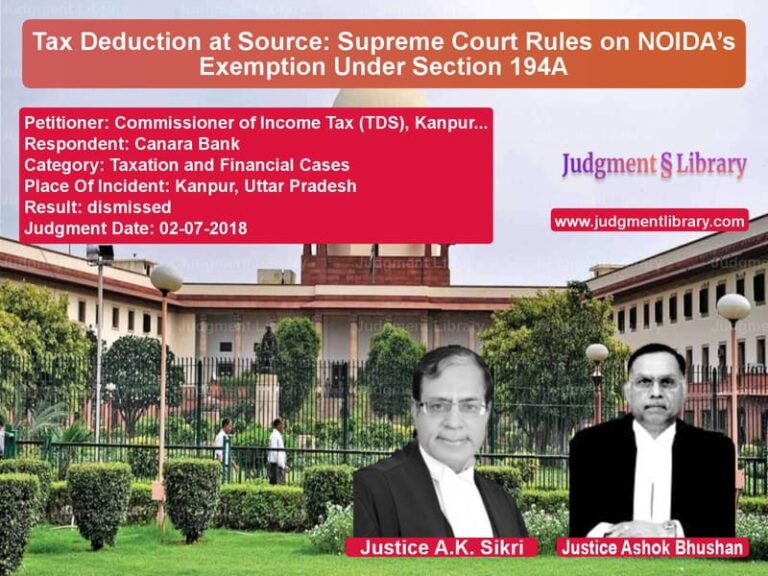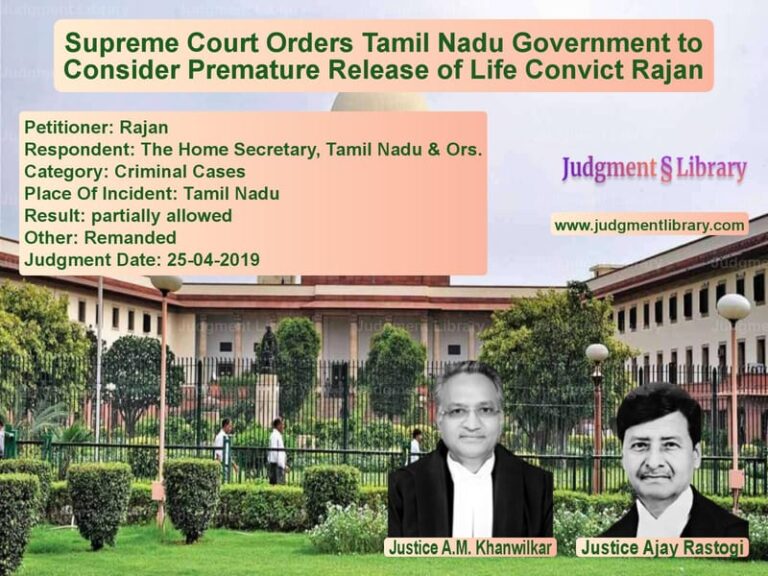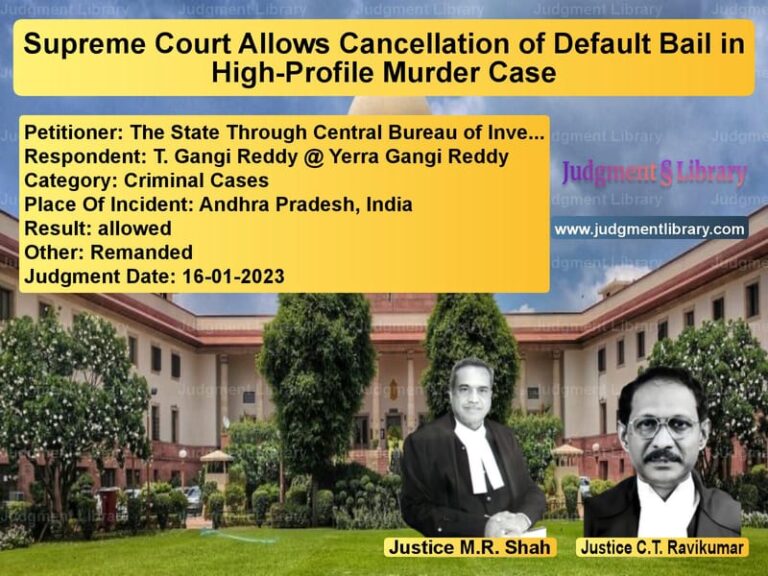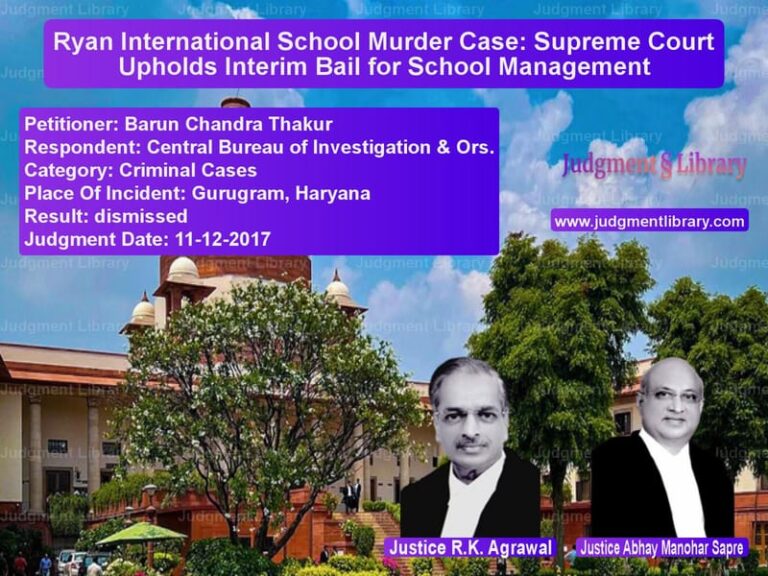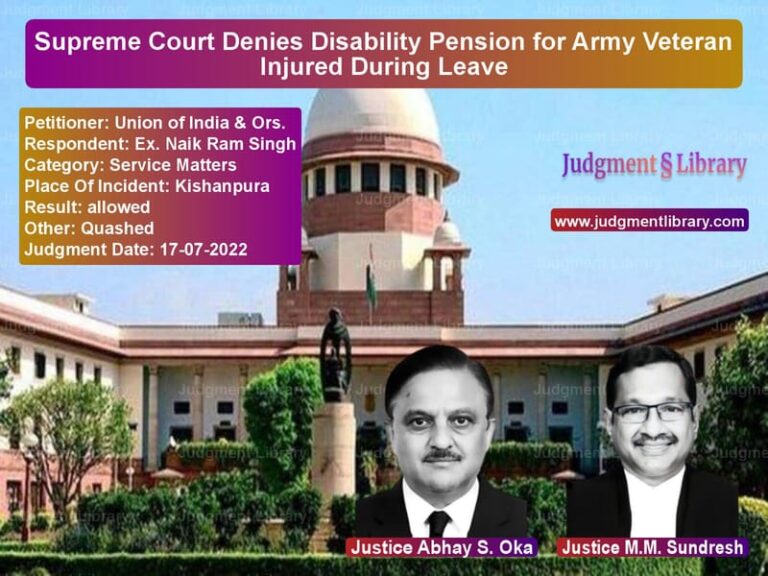Supreme Court Strikes Down Successive Review Petitions in Telangana Land Dispute
The Supreme Court of India, in S. Madhusudhan Reddy v. V. Narayana Reddy & Others, delivered a landmark ruling addressing the issue of successive review petitions in a land dispute in Telangana. The Court held that multiple review petitions against the same order are impermissible and reiterated the limited scope of review jurisdiction. This judgment serves as a crucial precedent in property disputes involving tenancy rights and procedural fairness in litigation.
Background of the Case
The dispute revolves around agricultural land situated in Kammadanam Village, Shadnagar Mandal, Mahabubnagar District, Telangana. The land in question was originally held by late Shri Chandra Reddy and late Shri Chenna Reddy, who were protected tenants under the A.P. (Telangana Area) Tenancy and Agricultural Lands Act, 1950.
The landowners, late Venkat Anantha Reddy and his brother late Laxma Reddy, allegedly reached an agreement with the tenants, under which the tenants surrendered their tenancy rights in exchange for the landowners not opposing their ownership of a different land parcel. The surrender proceedings were purportedly recorded by the Tehsildar in 1967.
Read also: https://judgmentlibrary.com/supreme-court-modifies-refund-order-in-nagpur-real-estate-dispute/
However, the legal heirs of the protected tenants contested this surrender decades later, claiming they had been dispossessed illegally. They filed appeals before the Joint Collector in 2002, which led to multiple rounds of litigation.
Petitioners’ (Appellants’) Arguments
The appellants, represented by Senior Advocate Dr. Abhishek Manu Singhvi, contended:
- The second round of review petitions filed by the respondents was not maintainable, as the first review petitions had already been dismissed in 2014.
- The respondents had not discovered any new material evidence that was unavailable earlier.
- The High Court erred in allowing the review petitions based on documents that were already in the respondents’ possession.
- Under Order XLVII Rule 1 CPC, review is only permitted when there is an error apparent on the face of the record or when new evidence is discovered that could not have been produced earlier with due diligence.
- The High Court’s order effectively converted the review petition into an appeal, which is not permissible.
Respondents’ Arguments
The respondents, represented by Senior Advocate Mukul Rohatgi, defended their case with the following arguments:
- The protected tenants’ legal heirs were unaware of the alleged surrender proceedings until 2001, when they applied for tenancy records.
- The delay in challenging the surrender was justified as they had no prior knowledge of it.
- The surrender was validly recorded in 1967, and the landowners had relied on it for decades.
- The Supreme Court, in an earlier order, had allowed them to file review petitions if they could produce certified copies of the surrender documents.
- The High Court had correctly exercised its jurisdiction in reviewing the previous order.
Supreme Court’s Key Observations
The Supreme Court extensively analyzed the principles of review jurisdiction and made the following key observations:
- Limited Scope of Review: The Court reiterated that review is not an appeal and cannot be used to reargue settled issues.
- New Evidence Must Be Truly New: The respondents failed to establish that the documents they submitted in the second review petition were unavailable earlier.
- Successive Review Petitions Are Impermissible: Once a review petition is decided, a second review on the same grounds is not maintainable.
- Order XLVII Rule 1 CPC: The Court reaffirmed that review is permissible only if there is a clear error apparent on the face of the record or if genuinely new evidence is discovered.
- Procedural Fairness: The Court found that the respondents had multiple opportunities to present their case and failed to do so.
Supreme Court’s Judgment
Based on its findings, the Supreme Court ruled:
- The second set of review petitions was not maintainable.
- The High Court’s order allowing the review petitions was set aside.
- The judgment dated July 9, 2013, which had ruled in favor of the appellants, was restored.
- The matter was concluded with no further review permissible.
Impact of the Judgment
This ruling has significant implications for property law and procedural justice:
- Finality in Litigation: The judgment prevents litigants from filing successive review petitions to prolong disputes.
- Protection of Landowners’ Rights: The decision ensures that landowners cannot be unfairly deprived of their property decades after an alleged surrender.
- Precedent on Review Jurisdiction: The ruling clarifies that review petitions cannot be used as an alternative to appeals.
- Judicial Economy: By rejecting successive reviews, the Court emphasized the need to prevent judicial backlog.
Conclusion
The Supreme Court’s decision in S. Madhusudhan Reddy v. V. Narayana Reddy & Others reinforces the principles of procedural fairness and finality in litigation. By striking down the successive review petitions, the Court upheld the integrity of judicial processes and ensured that review jurisdiction is exercised within its legal limits. This ruling sets an important precedent for future cases involving land disputes and procedural fairness in civil litigation.
Petitioner Name: S. Madhusudhan Reddy.Respondent Name: V. Narayana Reddy & Others.Judgment By: Justice N.V. Ramana, Justice Krishna Murari, Justice Hima Kohli.Place Of Incident: Telangana.Judgment Date: 18-08-2022.
Don’t miss out on the full details! Download the complete judgment in PDF format below and gain valuable insights instantly!
Download Judgment: s.-madhusudhan-reddy-vs-v.-narayana-reddy-&-supreme-court-of-india-judgment-dated-18-08-2022.pdf
Directly Download Judgment: Directly download this Judgment
See all petitions in Property Disputes
See all petitions in Succession and Wills
See all petitions in Damages and Compensation
See all petitions in Judgment by N.V. Ramana
See all petitions in Judgment by Krishna Murari
See all petitions in Judgment by Hima Kohli
See all petitions in allowed
See all petitions in Remanded
See all petitions in supreme court of India judgments August 2022
See all petitions in 2022 judgments
See all posts in Civil Cases Category
See all allowed petitions in Civil Cases Category
See all Dismissed petitions in Civil Cases Category
See all partially allowed petitions in Civil Cases Category


